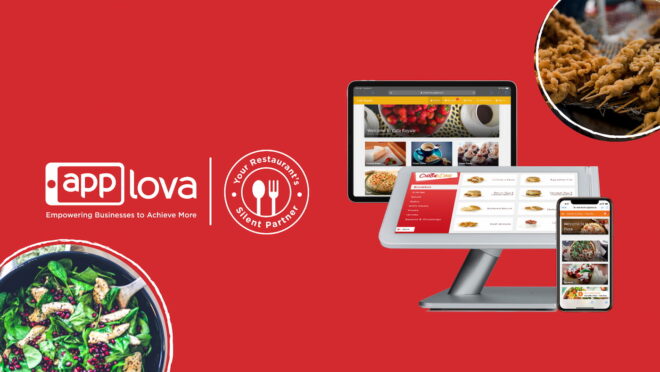Turning the tables: Reviewing restaurant review sites
Editorial Team
5 min read
There was a time when the only external sources you needed to monitor were the Yellow Pages, the Better Business Bureau’s directory, and a handful of printed restaurant review guides. Then, along came the Internet, which introduced thousands of online platforms that let diners rate and review restaurants in near real-time. A Google search of “restaurant reviews” can return overwhelming results.
Given the sheer number of restaurant rating sites, how can you possibly monitor your online reputation? With so many other business priorities competing for your time, is it even worth trying to track and respond to every positive, negative, or neutral review?
Why restaurant review sites still matter
Although monitoring your online reputation can present challenges, you shouldn’t turn your back on restaurant review sites. They still matter due to a concept known as “social proof.” In the absence of first-hand experience, we often look to the crowd to see what everyone else is doing. Review sites offer a useful shortcut that allows you to see what others’ experiences were like. This is as true for movies, books, and vacation destinations as it is for restaurants.
In fact, nine out of 10 diners consult restaurant review websites before making a reservation.1 This number might even be higher now that COVID-19 restrictions have raised the stakes. With fewer opportunities to dine out, patrons are more incentivized than ever to get it right the first time.
Monitoring every rating site is neither possible nor practical. Going after the lowest-hanging fruit may offer the best return on investment. When focusing on your online reputation, here are some of the best restaurant review sites with which to start.
1. The Google ecosystem
Google My Business, Google Local Guides, and Google Maps are three tightly integrated properties within the search engine’s larger ecosystem. It makes sense to focus on these platforms given how many online searches start and end with Google. An estimated 63.3% of consumers check Google before making a purchase.2 If your restaurant has rock-solid reviews, there’s a good chance your restaurant could appear above the organic results anytime someone does a search of [your city] + [your cuisine].
Claim your business listing on Google, make sure your contact information is up to date, and start monitoring any reviews that come through this channel.
Another lesser-known tool is Google Alerts. The great irony is that this platform isn’t really a review site. Instead, it’s a notification service that sends alerts every time your brand (or any custom keyword) is mentioned online.
If the name of your restaurant is “Acme Pizza,” for example, you can set up Google Alerts to let you know the moment someone writes an article, review, or comment that includes your restaurant’s name. In effect, you’re able to automate the process instead of managing online reviews by hand. Just keep in mind that Google Alerts can only detect front-facing mentions that aren’t behind paywalls or logins. This means you won’t necessarily see every positive or negative mention of your restaurant on gated platforms such as Facebook.
2. Yelp
Although only 20% of Yelp reviews are focused on food and beverage, it still ranks among the best restaurant review sites.3 This largely stems from its nearly 180 million unique monthly users and fantastic filtering options.4 Yelp is so widely trusted that to not have a listing could send red flags to anyone trying to find you on this huge platform. Because it’s technically possible for customers to leave reviews – even if you haven’t claimed your business listing yet – it’s imperative to create a profile for your restaurant as quickly as possible.
3. Zagat
Launched in 1979 as a printed guide, Zagat quickly grew to become one of the most popular restaurant review resources in the industry.3 Since being acquired by Google, it has quickly evolved into one of the best restaurant review sites online. Even better, Zagat integrates seamlessly with Google Business pages. Although it may not have the reach of platforms such as Yelp, it currently boasts an impressive two million followers on Twitter.3
4. Facebook
Although this social media platform has “review” capabilities, that’s not why you should be using Facebook. The real reason is much simpler. Just as having a website quickly became a necessity for any business in the early 2000s, having a social media presence on Facebook is essential in 2020. People expect you to have a profile or business page to help convince them you’re a legitimate business, earn their trust, and convert them to customers.
As a bonus, Facebook is good at facilitating conversations between you and your customers. Comments, likes, shares, and other engagement signals allow you to spot and resolve issues before they negatively impact your bottom line.
The best restaurant reviews are the ones you control
There are too many restaurant rating sites online to mention; however, some other popular sites include: Foursquare, OpenTable, TripAdvisor, and the aptly named Dine. The four platforms mentioned above capture a disproportionate percentage of online customer reviews. If the goal is to optimize limited time, resources, and attention, start with these food review websites first.
Monitoring your online reputation doesn’t always have to be passive, though. Using technology, it’s now possible to actively solicit customer feedback and address potential concerns before those negative reviews ever appear online. Clover’s line of POS solutions comes with customer management software designed for this purpose. Better still, this powerful payment solution integrates seamlessly with loyalty programs and customer relationship management (CRM) suites – allowing you to foster the types of relationships and conversations that keep customers returning.
This level of integration should be a prerequisite for any payment solutions you explore. The more you can automate time-consuming tasks, such as online reputation management, the more you can focus on creating dining experiences users will rave about to their friends, family members, and perfect strangers.
To learn how our PCI-compliant payment solutions and customer management software can help you build social proof, attract more customers, and boost sales, request a demo from our merchant services team today.
1 “Making the Grade: How Do Your Restaurant’s Digital Marketing Efforts Stack Up,” OpenTable, 18 July 2019
2 “2018 Review Trackers Online Review Stats and Survey,” ReviewTrackers
3 “Find Out What Your Patrons Think: 7 Restaurant Review Sites Owners Can Monitor,” Restaurant Engine
4 “Yelp Fact Sheet: Stats Your Business Needs to Know,” ReviewTrackers, 2 September 2020
Related Posts
Fiserv completes acquisition of BentoBox
Labor shortages getting your restaurant down? Forget hiring, think technology
Popular Topics
Stay In Touch
Sign up and learn more about Clover.
Thank you for your subscription!
Recent Stories
- Jewelry store supplies and equipment needed for opening day
- How small businesses can use employee discounts to retain staff
- Tips and tricks for opening an outdoor pop-up restaurant
Please share your contact information
to access our premium content.
Thank you for sharing your contact information.
Download Now





